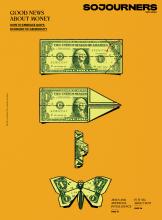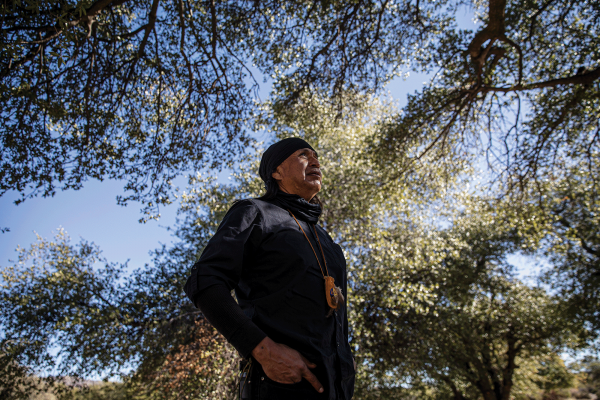LONG-DISTANCE RUNNING has long been part of Apache traditional lifeways. For Wendsler Nosie Sr., it is a core expression of prayer and communion with the Earth.
In October 1990, the then 31-year-old tribal chair of the San Carlos Apache Reservation ran more than 60 miles in two days as prayerful resistance to the destruction of sacred sites at Mount Graham in Arizona. Two years earlier, Sen. John McCain had turned over Mount Graham to the University of Arizona to install telescopes. Nosie’s prayer run was part of a wider Apache and environmentalist movement to stop destruction of the mountain for the observatory project.
Nosie also was promoting a revival of his traditional Apache spirituality. The prayer run helped him “realize so much about our identity, where we originated and the sacredness of what makes us who we are.” Nosie went on to establish Apaches for Cultural Preservation and the Spirit of Mountain Runners, hosting twice-yearly community prayer runs. Grounded in ceremony, these runs begin at the site of the prison camp where the U.S. Army held Nosie’s ancestors in the 1890s. The destination of the summer run is Mount Graham; in winter, it is Oak Flat, another sacred site.
Oak Flat (Chi’chil Biłdagoteel) is a high desert valley in the mountains east of Phoenix, roughly 2,400 acres of federal land in Tonto National Forest that is sacred to Native Americans. Its fresh springs nurture oaks, making it a traditional acorn-gathering site for the Apache, and its canyons are lush with medicinal plants. The Apache have held ceremonies here for centuries. Nosie speaks reverently about Oak Flat as a place where his people have conversations with angels.
Read the Full Article

